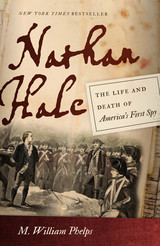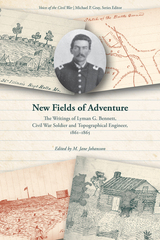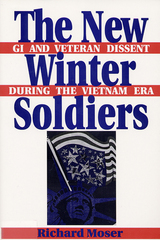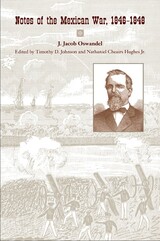7 start with N start with N

One of the first books on "Gays in the Military" published following the historic repeal of "Don't Ask Don't Tell" in 2011 ,Napoleonic Friendship examines the history of male intimacy in the French military, from Napoleon to the First World War. Echoing the historical record of gay soldiers in the United States, Napoleonic Friendship is the first book-length study on the origin of queer soldiers in modern France. Based on extensive archival research in France, the book traces the development of affectionate friendships in the French Army from 1789 to 1916. Following the French Revolution, radical military reforms created conditions for new physical and emotional intimacy between soldiers, establishing a model of fraternal affection during the Revolutionary and Napoleonic Wars that would persist amid the ravages of the Franco-Prussian War and World War I. Through readings of Napoleonic military memoirs (and other non-fiction archival material) and French military fiction (from Hugo and Balzac to Zola and Proust), Martin examines a broad range of emotional and erotic relationships, from combat buddies to soldier lovers. He argues that the French Revolution's emphasis on military fraternity evolved into an unprecedented sense of camaraderie in the armies of Napoleon. For many soldiers, the hardships of combat led to intimate friendships. For some, the homosociality of military life inspired mutual affection, lifelong commitment, and homoerotic desire.


This volume provides the perspective of an individual who was both a topographical engineer—with extensive experience that spanned the country from Arkansas to the Overland Trail—and a common soldier. As a member of the Thirty-Sixth Illinois Infantry, Bennett provided one of the most detailed contemporary accounts of the pivotal Battle of Pea Ridge, March 7–8, 1862. By December 1863, Bennett was promoted to first lieutenant in the newly formed Fourth Arkansas Cavalry (US) and wrote an invaluable first-person account of guerrilla fighting in the Ozark mountains. Readers will delight in Bennett’s witty descriptions of the ankles (and even higher!) of ladies as they gathered their skirts to trek through the mud; his sometimes-cutting words about his fellow hospital patients; and his wry comments on that “exclusively southern institution,” the chigger. New Fields of Adventure will prove useful to scholars of the Ozarks, landscape studies, and the Civil War in the West.

Richard Moser uses interviews and personal stories of Vietnam veterans to offer a fundamentally new interpretation of the Vietnam War and the antiwar movement. Although the Vietnam War was the most important conflict of recent American history, its decisive battle was not fought in the jungles of Vietnam, or even in the streets of the United States, but rather in the hearts and minds of American soldiers. To a degree unprecedented in American history, soldiers and veterans acted to oppose the very war they waged. Tens of thousands of soldiers and veterans engaged in desperate conflicts with their superiors and opposed the war through peaceful protest, creating a mass movement of dissident organizations and underground newspapers.
Moser shows how the antiwar soldiers lived out the long tradition of the citizen soldier first created in the American Revolution and Civil War. Unlike those great upheavals of the past, the Vietnam War offered no way to fulfill the citizen-soldier's struggle for freedom and justice. Rather than abandoning such ideals, however, tens of thousands abandoned the war effort and instead fulfilled their heroic expectations in the movements for peace and justice. According to Moser, this transformation of warriors into peacemakers is the most important recent development of our military culture.
The struggle for peace took these new winter soldiers into America rather than away from it. Collectively these men and women discovered the continuing potential of American culture to advance the values of freedom, equality, and justice on which the nation was founded.

Basing this compelling war memoir on his original World War II diary, Pfc. Richard D. Courtney tells what it was like to be a combat infantryman in the greatest and most destructive war in history.

Told in the form of the pithy, even lyrical advice a young soldier leaves behind after a mission gone wrong, Notes for a Young Gentleman is no exception. Its brilliantly creative form, and the epigrammatic genius Litt displays in its creation, nonetheless can’t hide the powerful, emotional story at its heart: of a young soldier parachuting toward a beautiful, moonlit country house on a mission . . . of betrayal. The house? Marlborough. The target? Winston Churchill, an old friend of his father. A brilliant, at times dizzying but always heartfelt exploration of love, revenge, and the essence of a gentleman, Notes for a Young Gentleman is classic Toby Litt: wholly new and wholly unforgettable.

In December 1846, John Jacob Oswandel—or Jake as he was often called—enlisted in the Monroe Guards, which later became Company C of the First Pennsylvania Volunteer Regiment. Thus began a twenty-month journey that led Oswandel from rural Pennsylvania through the American South, onward to the siege of Veracruz, and finally deep into the heart of Mexico. Waging war with Mexico ultimately realized President James K. Polk’s long-term goal of westward expansion all the way to the Pacific Ocean. For General Winfield Scott, the victorious Mexico City campaign would prove his crowning achievement in a fifty-three-year military career, but for Oswandel the “grand adventure of our lives” was about patriotism and honor in a war that turned this twenty-something bowsman into a soldier.
Notes of the Mexican War, 1846–1848, is the quintessential primary source on the Mexican War. From Oswandel’s time of enlistment in Pennsylvania to his discharge in July of 1848, he kept a daily record of events, often with the perception and intuition worthy of a highly ranked officer. In addition to Oswandel’s engaging narrative, Timothy D. Johnson and Nathaniel Cheairs Hughes, Jr. provide an introduction that places Oswandel’s memoir within present-day scholarship. They illuminate the mindset of Oswandel and his comrades, who viewed the war with Mexico in terms of Manifest Destiny and they give insight into Oswandel’s historically common belief in Anglo-Saxon superiority—views that would bring about far worse consequences at the outbreak of the American Civil War a dozen years later.
As historians continue to highlight the controversial actions of the Polk administration and the expansionist impulse that led to the conflict, Notes of the Mexican War, 1846–1848, opens a window into the past when typical young men rallied to a cause they believed was just and ordained. Oswandel provides an eyewitness account of an important chapter in America’s history.
READERS
Browse our collection.
PUBLISHERS
See BiblioVault's publisher services.
STUDENT SERVICES
Files for college accessibility offices.
UChicago Accessibility Resources
home | accessibility | search | about | contact us
BiblioVault ® 2001 - 2024
The University of Chicago Press









